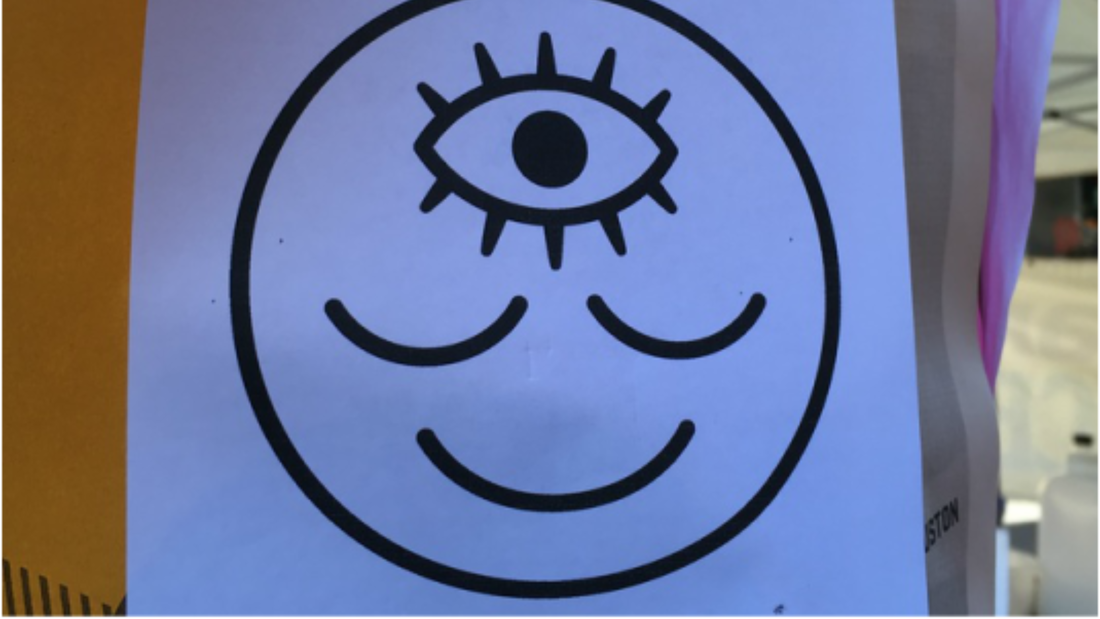|
It’s not just that starting back up is hard. It’s that everything in my body is screaming at me not to do it. If I’ve been away from running for more than a week, my hands and arms will itch when I start back up. I feel nauseous. I get a little indigestion. I even have the feeling that I’ve got the runs—but it’s always a false alarm. After a couple weeks of consistently showing up, the itching goes away. But for those 14 days? It sucks. * When I’m starting back up, it feels like the universe is telling me, in no uncertain terms, that I shouldn’t even bother. But when I can finally run consistently—when I fall into flow and it seems like I could go on forever—it’s the best feeling in the world. Until I fall off the wagon again. I saw allergists, dermatologists, even a counselor—no one could figure it out. After a third visit, the allergist says, “If it happens again, just take an antihistamine.” So for years, I’d fall out of my routine, and when I started back up, I’d slog through the nausea, the indigestion, and the itching. Then right afterwards, I’d take the antihistamine. Then one day I’m whining to a friend about it, and she says, “Why don’t you just take the antihistamine beforehand? That way you can avoid the itching altogether!” Even now, years later, I can’t believe I didn’t think of that myself. But that’s my point. When we’re struggling with a problem, we often can’t see even the most obvious solutions. We often need someone from our Squad to point it out to us. * By “Squad,” I mean, the team of supporters we have around us—those people who help us see what we can’t—the small and obvious things we can do to overcome our challenges instead of being overwhelmed by them. Why is that? Why can’t we see what’s happening as well as the people around us? I was reminded of why during a recent conversation with my coach. She was talking about all this progress I’d made, all these changes I’d put in place, and the whole time I’m thinking what is she talking about?? But the more she talked, the more she reminded me of where I’d been when we started working together. And it dawned on me that sometimes, she sees me more clearly than I see myself. Because I’m just living my life. She, on the other hand, is watching me live it. Every member of our Squad does that—not just the ones who are professionals. They stand apart from our minute to minute existence, and observe us over time, and with compassion. Which not only helps them see our patterns—it helps them see our strengths and the solutions we’re too immersed in our own life to notice. Every writer needs a Squad. The insight they bring us elevates them from just a group of people who love us to a resource that makes us the writers we are today. Whenever I talk to a scholar who’s slipped in their writing, the problem almost always lies in one of two areas: either they’ve abandoned the strategies they use to ease themselves into writing; or they’ve inadvertently isolated themselves from the people that keep them clear and grounded. * Now here’s the thing: our Squad doesn’t include our mentors, advisors, or patrons. These are people we value--immensely. But we have to maintain a certain level of professional decorum when we’re with them. Our Squad, on the other hand, is made up of people we can fall apart in front of. People who join us in outrage when we’re ranting and raving about the world. People who don’t give a shit if we never write another word. All they care about is whether we’re happy. Whether we’re healthy. Whether we’re itching when we try to run. The most important characteristic of your Squad is that you trust them: to listen deeply; to see you clearly; and to come hard with sympathy and solutions. It’s fine if they’re academics, but they don’t have to be. An incomplete list of the members of my Squad, for example, includes: My parents, my brother, my girlfriends, and Mr. InkWell My burnout coach My posture coach My therapist My Tiny Business BFFs The second person in each of my 2-Person book clubs The three other people in my Intention Setting group As you can see, some of the members of my Squad are paid to be on my side. Some of them were born on my side. Others, I got lucky and found as I floated through life. None of them gives me exactly what the others do, but all of them support me as a writer. Because all of them know how to help me find solutions I can’t find on my own. * The thing about it is—everybody has a Squad. Even those of you who are the only one in your department/college/institution/neighborhood. But sometimes we forget about them. Or we don’t make time for them. Or we don’t want to “bother” them. Or we’re too embarrassed to admit to ourselves (and anyone else) that we need help. But your Squad is what got you where you are today, isn’t it? So, if you can’t find a minute to write; if you write but can’t figure out what you’re trying to say; if your data doesn’t making any frickin’ sense; if the draft is due in a week and it’s only half done; stop reading this essay and and send them a text right now. Because on our own, we can’t see what we can’t see. That’s why we have each other. Want the monthly InkWell blog delivered straight to your inbox? Subscribe to Inkling, a bite-sized, monthly newsletter filled with ideas, inspiration, and information for academic writers.
Comments are closed.
|
|
© 2018 InkWell Academic Writing Retreats
|

